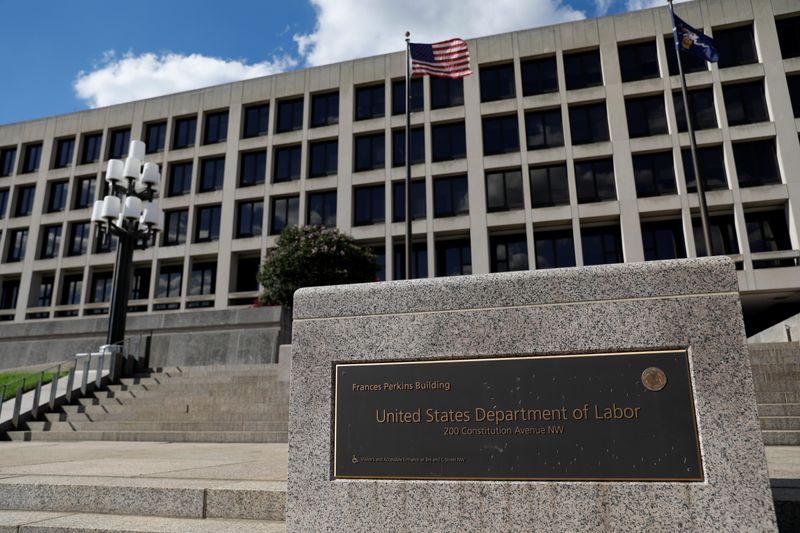By Tom Hals
WILMINGTON, Delaware (Reuters) - A U.S. judge has blocked a Department of Labor rule from taking effect that would have expanded the types of retirement advisers who are considered fiduciaries, finding the rule was arbitrary and conflicted with a law that governs retirement plans.
The rule, unveiled in April as the "Retirement Security Rule," was challenged by insurance groups who argued it conflicted with ERISA, or the Employee Retirement Income Security Act.
Judge Jeremy Kernodle in Tyler, Texas, said in a Thursday ruling that the Federation of Americans for Consumer Choice Inc and other insurance groups were likely to prevail in their arguments. He blocked the rule nationally from taking effect on Sept. 23 while the lawsuit plays out.
The insurance groups had argued the rule improperly treated as fiduciaries those who provide one-time recommendations to retirees, such as for rolling over investments from an ERISA plan to an individual retirement account, or IRA.
The Labor Department said in a statement that the rule ensures retirement savings advice is in the best interest of the customer, not of the financial professional. "The department continues to believe that this rule is essential to ensuring that retirement investors are protected," the DOL statement said.
The rule was meant to close a loophole in the fiduciary standard that did not apply to recommendations for purchases of non-securities such as fixed index annuities, which are typically sold by insurance companies, according to the White House.
Investments in such annuities are attractive to risk-averse investors and have grown rapidly but also come with higher costs. The White House estimated the fiduciary rule could have saved retirees $5 billion a year on such investments.
Business groups have been using the courts to chip away at regulatory power and won a major Supreme Court victory in June in a case known as Loper Bright, which held that judges should not defer to an agency's interpretation of an ambiguous law.

Kernodle said as a result of Loper Bright, he did not owe deference to the Labor Department's interpretation of ERISA.
The Labor Department tried to expand the fiduciary rule in 2016, under the administration of Democratic President Barack Obama. That effort was blocked by the 5th U.S. Circuit Court of Appeals in 2018 and Kernodle said the latest version of the fiduciary rule fails for many of the same reasons.